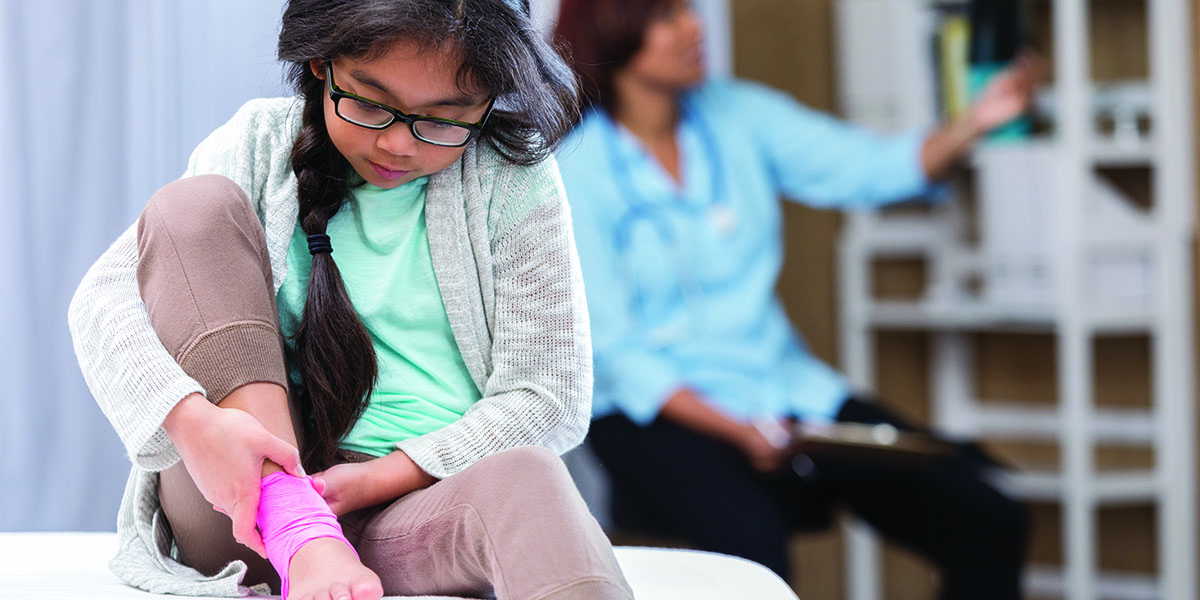Why are there only two pediatric rheumatologists employed by NSW Health?
If understaffing and underfunding for paediatric rheumatologists in New South Wales continues it may affect quality of care, particularly for patients with juvenile idiopathic arthritis, experts say.
Juvenile idiopathic arthritis (JIA) is the most prevalent paediatric rheumatic disease and affects 3000 children in the state.
The average child with JIA may wait 10 months between the onset of symptoms until a diagnosis is reached by a medical professional, according to Arthritis NSW.
One of the major problems is understaffing. NSW has seven times fewer consultant paediatric rheumatologists than other states in Australia, with only two employed on a part-time basis by NSW Health.
A benchmarking exercise performed in 2018 by the Australian Paediatric Rheumatology Group (APRG) shows that when compared with other states on a per capita basis, NSW also has a three-fold shortfall in nurses and a 10-fold shortfall in administrative support in the public hospital system for JIA care.
“NSW is failing on a number of fronts in the services provided to patients and their families compared to the national average,” APRG chair Dr Christina Boros said.
Paediatric rheumatologists in that state were responsible for a workload of patients five times higher than the national average, she said.
“They are working much harder than the rest of the consultants in Australia to see their patients, I don’t know how they do it,” Dr Boros told Rheumatology Republic.
Dr Boros says the underfunded model was problematic for quality care and patient safety.
“Despite having such few resources, they are still providing a 24 hour a day, seven days a week on-call service,” she said.
The reluctance for NSW Health to employ more paediatric rheumatologists is not an issue of supply either.
“We have so many people training to be rheumatologists, and nationwide, in public hospitals, there needs to be money put aside for paediatric rheumatologists to practice,” Dr Boros said.
The accepted standard of care for the management of JIA should include the provision of a multidisciplinary team of health professionals to follow the child through diagnosis, and long-term follow-up.
“This requires a group of people who are co-located and have a department and administrative support,” Dr Boros said.
Currently, this type of support for patients and families is not universally available in NSW, where in many cases the physician alone may be responsible for all elements of care.
The waiting times in NSW are also longer than they should be.
“The national benchmark from referral to being seen in the clinic is a month, and children cannot be seen in that timeframe if they don’t have the staff,” Dr Boros said.
Long waiting lists mean only “absolutely urgent” patients could be seen within the recommended four weeks, despite early diagnosis improving the outcomes of children with JIA.
Arthritis NSW says children are likely to present to four or five professionals before a JIA diagnosis is even considered a possibility.
Childhood rheumatic diseases were now more prevalent than diabetes, cerebral palsy and cystic fibrosis, but services to assist patients were not up to scratch, Arthritis NSW CEO Sandra Vincent said.
Funding in-hospital teams is only one area of streamlining the treatment process, with GPs needing further education in juvenile arthritis as well.
“Parents tell us some GPs can’t pick it (JIA) up and it gets put down to growing pains, and in the meantime, damage is being done to the joints,” Ms Vincent said.
The NSW government in 2013 acknowledged the provisions allocated for JIA patients were inadequate, but Arthritis NSW says they have since failed to remedy the problem.
NSW Health maintains they have made a “number of enhancements” to paediatric rheumatology services, with a spokesperson telling Rheumatology Republic that additional staff had been recruited and after-hours care had also been extended.
“These changes have increased the resources within the Sydney children’s hospitals network and developed a system that supports patients and their families closer to home,” the spokesperson said.
The changes were referred to as “stage one,” but no additional information about future rheumatology services in NSW was provided.


